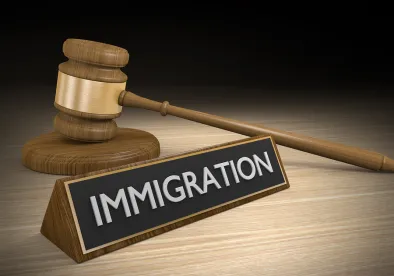On Jan. 27, President Trump issued an Executive Order entitled "Protecting the Nation from Foreign Terrorist Entry into the United States.” The executive order temporarily suspends immigration for 90 days for citizens of seven countries: Iran, Iraq, Libya, Somalia, Sudan, Syria and Yemen. In addition, it suspends the refugee program for 120 days to determine which nationalities pose the least risk and suspends the Syrian refugee program indefinitely.
The situation is fluid and travel and processing delays are expected. The executive order will affect certain employees and contractors who are citizens of or were born in one of the impacted countries, as follows:
U.S. Citizens – U.S. citizens are not impacted by the executive order. However, they may be subject to “secondary inspection” upon arrival in the U.S. This is not new or related to this order, and is within the discretion of the Customs and Border Protection (CBP) at the port of entry. However, U.S. citizens do have a right to counsel and admission into the U.S. Those who are U.S citizens and also have passports from one of the impacted countries (dual citizens) are reminded that they must use their U.S. passport to enter the U.S.
U.S. Permanent Residents (green card) – Permanent residents will not be automatically barred from entering the U.S. They are not subject to the same grounds of inadmissibility as nonimmigrants (B-1, H-1B, L-1, O-1, E and others) or arriving immigrants entering to be permanent residents. Absent information that would indicate they are a threat to public safety and welfare, they should be admitted although the process through secondary inspection will be long. CBP has discretionary authority to question permanent residents and make determinations on a case-by-case basis. However, no permanent resident should be required to surrender their permanent residency card and status. Relinquishment of permanent residency at a port of entry or consulate MUST always be voluntary. If CBP officers insist, the permanent resident should consider requesting an appearance before an immigration judge by issuance of an NTA or Notice to Appear.
Dual Citizens – Citizens of one of the seven countries and one country other than the U.S.- (i.e. citizen of Canada and Iran) will be subject to additional questioning.
Individuals on temporary visas such as H-1B, TN, L, E and O, who are nationals of the seven countries, will be barred from entering or boarding planes to the U.S. Syrian nationals are further impacted by the EO, which directs the State Department to stop issuing visas to Syrian nationals, until enough security changes have been made for the proper vetting of would-be terrorists. It is reported that foreign nationals in these situations at ports of entry are having their visas revoked and allowed to withdraw their admission to the U.S. or be expeditedly removed.
The executive order also suspends indefinitely the visa interview waiver. (This is different from the Electronic System for Travel Authorization (ESTA), the 90-day entry without a visa.) The waiver allowed certain individuals applying for passport visas at consular posts to be processed without an in-person interview. This change will most likely result in additional and possibly significant delays in visa processing at U.S. consulates.
The situation is fluid and is changing rapidly. Under the current circumstances, impacted individuals should consider whether to cancel trips outside the United States or to postpone travel to the U.S. if they are not U.S. citizens. Lawful permanent residents will be subject to additional scrutiny if they are from the designated counties.



 />i
/>i
